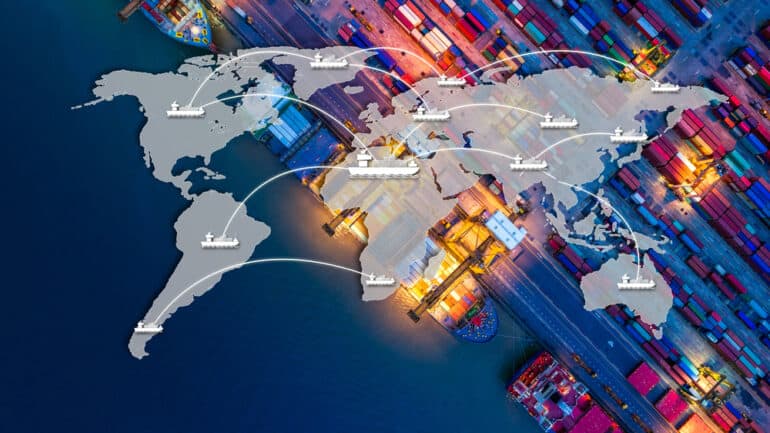[ad_1]
Global supply chain disruptions have become a major issue affecting businesses worldwide, as companies struggle to navigate the challenges brought on by the COVID-19 pandemic, natural disasters, trade wars, and geopolitical tensions. These disruptions have caused delays, shortages, and price increases for businesses across various industries, leading to significant financial losses and operational challenges.
One of the main factors contributing to supply chain disruptions is the COVID-19 pandemic, which has led to factory closures, transportation restrictions, and labor shortages in many countries. This has disrupted the flow of goods and raw materials, causing delays in production and delivery times for businesses around the world. The pandemic has also created a surge in demand for certain products, such as personal protective equipment and medical supplies, further straining supply chains and exacerbating shortages.
Natural disasters, such as hurricanes, wildfires, and earthquakes, have also had a significant impact on global supply chains, disrupting transportation routes, damaging infrastructure, and causing delays in production and distribution. These events not only affect local businesses but also have ripple effects on businesses worldwide that rely on goods and materials from affected regions.
Trade wars and geopolitical tensions have added another layer of complexity to global supply chains, with tariffs, sanctions, and trade barriers impacting the movement of goods and materials between countries. The uncertain political landscape has made it difficult for businesses to forecast demand, plan production schedules, and secure reliable suppliers, leading to increased costs and disruptions in supply chains.
As a result of these disruptions, businesses are facing a range of challenges, including increased lead times, rising transportation costs, inventory shortages, and supply chain bottlenecks. Many companies are also struggling to meet customer demands and fulfill orders on time, which can damage relationships with clients and harm their reputation in the market.
To mitigate the impact of global supply chain disruptions, businesses need to adopt a proactive approach and implement strategies to build resilience in their supply chains. This may include diversifying suppliers, investing in technology and automation, improving forecasting and demand planning, and establishing contingency plans for various scenarios.
In conclusion, global supply chain disruptions are a major challenge for businesses worldwide, impacting their operations, profitability, and competitiveness. In order to survive and thrive in this complex business environment, companies need to be agile, adaptable, and prepared to navigate the uncertainties and risks of the global supply chain. By taking proactive measures and building resilience in their supply chains, businesses can better withstand disruptions and ensure the continuity of their operations in the face of ongoing challenges.
[ad_2]

